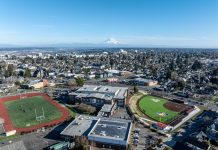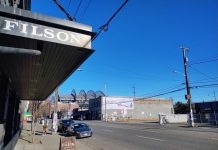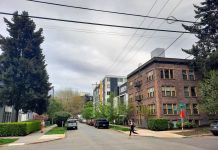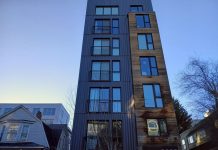Op-Ed: Why Housing Supply Advocates Should Support Rent Stabilization
The Washington State Legislature should pass HB 1217 to stabilize rents statewide. This is an important moment for housing supply advocates to show up in support of more stability for tenants.
Tacoma Rezone Offers Housing Diversity and Path to Breaking Car Dependence
In Tacoma, 62% of housing units are detached single family homes. This overabundance has come at a cost in terms of affordability and urban livability. But recent zoning changes could spur a greater variety of housing.
Council Committee Greenlights SoDo Housing Proposal Despite Strong Port Opposition
The 3-2 vote in committee sets up a final decision later this month, but the Port of Seattle is suggesting they may take legal action against the move.
Op-Ed: 10 Reasons Seattle Adding 30 Neighborhood Centers Is Smart Planning
Keeping all 30 proposed Neighborhood Centers is essential for a more affordable, sustainable, and thriving Seattle. If we chip away at Neighborhood Centers, we’ll be left with the same housing shortages, rising costs, and inequitable growth patterns we’ve seen for decades.
Op-Ed: SoDo Is for Industry, Seattle Should Reject Rushed Housing Push
Port Commissioner Ryan Calkins argues that the Seattle City Council should reject Council President Sara Nelson’s rushed plan to add a housing district in SoDo and continue to reserve the area for industry and freight needs.
Seattle Awards $22 Million in Equitable Development Grants Aimed to Combating Displacement
After weathering a budget scare, Seattle’s Equitable Development Initiative is growing, with $22 million in new awards aimed at combating displacement and anchoring communities of color.
Homeowner Groups Stoke One Seattle Backlash, Planners Hint at Compromises
Seattle City Councilmembers and top planning officials are making the rounds visiting homeowner-dominated community councils in their district to get feedback on the One Seattle growth plan.
Washington Senate Greenlights Elevator Reform Aimed at Boosting Midrise Homebuilding
Senate Bill 5156, approved by the Washington Senate this week, could open the door to more accessible small apartment buildings built around smaller European-style elevators, reducing overall housing costs at the same time.








